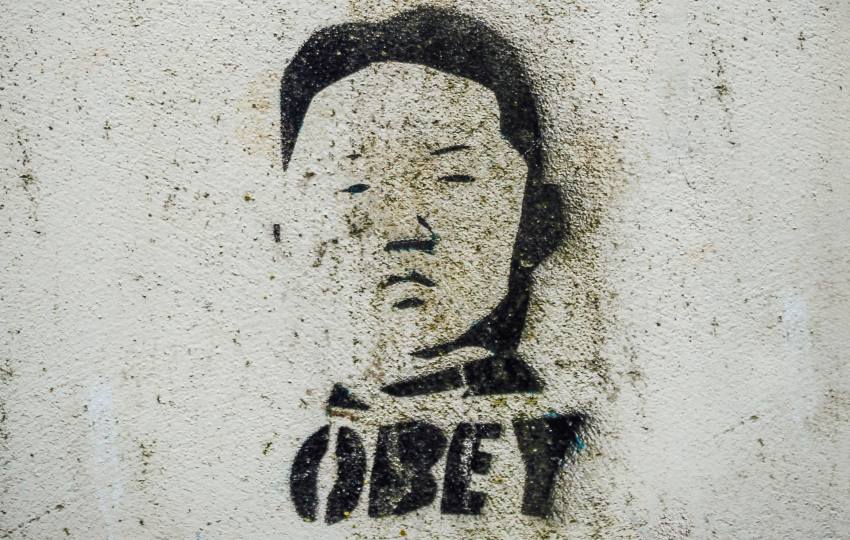The COVID-19 pandemic brought havoc worldwide, creating fear and uncertainty for everyone. Unfortunately, this fear was not only limited to health and safety concerns, but it has also expanded to employment.
Particularly, since the beginning of this health crisis, about 6 million European jobs have been lost. This sudden sidelining of workers led to the sharp increase in work demand while also increasing the competition for one position.
Based on how employment has changed these past two years, employees must be aware of two things:
- The existing Career Management Skills for individuals to successfully navigate their life and careers
- The main career competencies employers look for in candidates during their applications
In the first part of this article, we will show you the Career Management Skills (CMS) catalogue. Then, we will focus on the essential career competencies employers look for in their candidates’ résumés.
What are the Career Management Skills (CMS)?
The Career Management Skills catalogue was jointly developed by the “Career Skills” Erasmus+ European project consortium. What the EU partners wanted to achieve is creating a reference point for individuals and career guidance practitioners. This guide helps prospective employees and their trainers identify the most crucial career competencies employers look for in candidates in this new workplace era.
The Career Management Skills that this catalogue identifies are the following:
- Self-awareness
- Labour market awareness
- Employability
- Career planning
- Resilience
- Problem solving
- Creativity
- Self-employment skills
- Collaboration
- Curiosity and inquisitiveness
- Communication and customer orientation
- Leadership
These skills are essential to an individual’s career life, but not everyone possesses them, or at least in a meaningful way. If you want to check out how you fare in terms of your capabilities and determine if you own the career competencies employers are looking for in candidates, you can use the Career Skills Assessment Tool. This tool consists of 36 statements addressing the 12 career skills mentioned above, and, based on your answers, it will determine whether you need to develop further or not a specific capability.
Now that you know the necessary skills to manage your career and improve your employability, it is important to see what employers believe. Are there some skills that they are desperately looking for in their applicants?

The 6 career skills that employees should have
Everyone should agree that applying for jobs is not for the faint of heart as it can create a lot of disappointment, especially during a pandemic. Job positions are limited as there is still uncertainty around the pandemic and certain restrictions in place.
Notably, this is even more critical for young graduates who wish to enter the workforce, as remote working is still around. Despite the benefits of working remotely, it also makes the integration of young professionals in an office setting harder, something that employers know.
For this reason, if you are a young professional or you wish to change industries, you will need to make sure that your application stands out from the competition. To achieve this, apart from your hard skills, you should also emphasize your soft skills. At this point, you should get your pencils out and take notes, as these are the top career competencies employers will look for while screening your CV.
1. Resilience
Yes, you have read it right. Resilience. Being resilient has become critical for an employee in 2021. Unfortunately, desperate times call for desperate measures, and being resilient is what will get you through the pandemic. Most applicants do not even reach the interview stage, while at many times, they do not even get a negative response for their application.Unfortunately, this discourages many instead of making them try harder next time.
Therefore, finding a job or getting called up for an interview shows a certain degree of resilience. Your job application should highlight cases of adaptiveness or your ability to cope with uncertainty and stress in a professional or school setting.
2. Critical thinking
It is not only one of the career competencies employers look for in candidates, but it is also something that our education system strives to cultivate in our youth. Critical thinking is the careful collection and analysis of continuous information to understand an issue. Understanding is the first step before finding a solution to the task at hand.
To highlight your potential in critically analyzing data and your ability to make informed decisions, you should use powerful verbs when listing your experience. For example, you may say “identified,” “analyzed,” or “managed” while stating your past responsibilities.
3. Collaboration
Much emphasis in the modern workplace is given to collaboration between team members, with different functions within a company, or even with external partners. The pandemic heightens further the importance of cooperation as remote working continues to be the norm. Teams need to be on the same page, and collaboration is one way to achieve this. Someone that is not so keen on collaborating with others will only hinder the performance of the team.
To highlight your collaborative skills, you should demonstrate past teamwork experiences. Even college group projects that you have done count. But if asked during an interview about it, you should have something positive to say about it, and therefore you should focus on past successful collaborations. Everyone knows that working together with others is hard, leading to much tension between members.
4. Curiosity and inquisitiveness

Among the other stuff that HR managers look for in candidates is having a growth mindset. No one is born the perfect employee, but there is so much that we can learn and become better. Even defining the ideal employee from an employer’s perspective is difficult as company cultures vary and the job requirements for each position. Therefore, a curious and inquisitive mind is more likely than not the ideal type of employee.
Individuals with a growth mindset, as opposed to a fixed mindset, believe that their talents can develop further. For this reason, a characteristic of these individuals is that they are constantly seeking learning opportunities to develop their skills. There is an endless amount of new things that someone can learn and even more excellent eLearning opportunities to learn from. That is why your CV should include training and seminars you have attended in search of that knowledge.
5. Communication
Communication skills are critical to every individual, whether for their private or professional lives. Knowing what to say, when to say it, or even when we need to remain silent is important in building relationships with others and maintaining a positive outlook.
Communication skills are important for our day-by-day interactions, and even more so when it comes to managing others or building good relationships with external partners. Even climbing the hierarchy ladder requires excellent and effective communication skills to show that we are ready for the next step in our career.
You can prove your communication skills in your resume with some simple steps. First, you need your CV to be error-free and through careful selection of words. It would be best if you used descriptive words to show your expertise and relevant experience, communication skills, and experiences. For example, instead of simply stating that you have strong presentation skills, you could say that you have presented in X number of conferences or to Y number of attendees as a panelist.
6. Leadership

If we can be sure about one thing, leadership skills are one of those career competencies that employers look for in their candidates. Nearly everyone can have a leadership position, but not all have the qualities to become a strong leader. Based on studies, a strong leader is assertive, adaptive, intelligent, and conscientious (being diligent). However, the most important thing is that leaders need to be passionate about what they are doing, be good role models and inspire others to become their better selves.
Many of the qualities above in this article are components of a good leader. So, if you think that you own many of them, then it is highly likely that you are leader material. But it is not about convincing yourself, but instead your interviewer or whoever is going through your application. Therefore, you need to be prepared for all occasions to identify your leadership style, like leading by example.
Essentially, they need to see a system that has worked for you until this time with much success. There is no right or wrong answer, but you need to show that you know the dynamics involved in all situations and can decide the optimal course of action. However, it would help not sound “bossy,” as this is the opposite of a leader.
Conclusion

Finding a job is hard, especially in a crisis like the ongoing that limited work opportunities exist. But if we set our minds on achieving a goal, like finding employment, it is more than likely that we will be successful. The web is full of resources from which you learn anything you want, or in that case, to test your career skills.
With the Career Management Skills Catalogue, both prospective employees and current workers can use it to test their skills. They can determine the skills they lack and take all the necessary actions to cover that gap. With this article, you now know the career competencies employers will look for in the applications of their candidates. It is up to you to use that knowledge to increase your employability and find the ideal work to realize your dreams.
To learn more about the critical work that Career Skills Project is doing, you should visit their official website.

